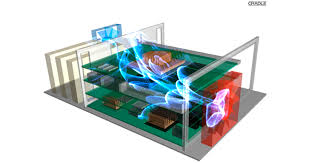Software Cradle was founded in Japan in 1984 and has been embedding CFD software for architects, designers, engineers, and architects for over 30 years. Through blind and open benchmarks, we have proven that our products are fast and precise. We recognize that there are two types of CFD: hexahedral meshing-based and tetrahedral mesh-based as well as polyhedral mesh-based and polyhedral mesh-based CFD.
Our products include scSTREAM, which uses a structured mesh approach and was developed specifically for the AEC industry. Cradle was developed in Japan, where it currently enjoys a strong market share in the powerful and cost-effective CFD market. We are pleased to announce that FlowHD has become a key component of our product line and one of the most popular products in our software lineup.
Recent Update
The v14.1 release continues the pioneering role of MSC Cradle with improvements in ease of use and processing speed that allow users to better complete daily tasks and in a way that enables CFD applications to contribute more to product design and development. As a result, we have seen that our customers want more return, and inclusion in the One is a bonus for many of them, “said Masayuki Kuba, President, and CEO. We are very close to our hearts as we carry out many projects for the AEC market and we are delighted to finally see a code that is so specifically tailored to our customers.
Company Background
Software Cradle Co. Ltd. is a subsidiary of MSC Software, Inc., a leading global provider of CFD software and software development. It was founded in 1999 with a focus on the development of high-quality software for the construction industry.
Founded in 1984, the company’s mission is to provide innovatively – focused, high-quality – software and software development services that improve customer product quality and creativity. As a truly global company, Software Cradle delivers the world’s highest quality CFD software to the construction industry, with an emphasis on developing high-quality products and services.
Features
VisualFEA integrates a full-fledged FEA platform that enables users to perform structural analyses ranging from the usual linear, static, and nonlinear dynamics to heat transfer and infiltration to a wide range of dynamic analyses. It is equipped with a more stable solver to achieve all three objectives, and a new preprocessor to help beginners build complicated models with high-quality mesh. Sources: 1, 5
If you want to combine structures with thermal conduction, you can do so in VisualFEA, and the software also enables coupling simulations. You can download the free software from our download page and you will be pleased to hear that we update it every six months with bug fixes and suggestions from the community. OpenFOAM is a full-featured, open-source, high-performance, low-cost FEA software developed by OpenCFD LTD since 2004. It is able to develop functions for a range of simulation tasks, including heat transfer, infiltration, heat transfer and infiltration, and structural analysis. Sources: 5
We strive to achieve what the world thought impossible by expanding our CFD capabilities, and we remain at the forefront of the development of powerful, cost-effective open-source software. After gaining access to MSC Software and the Hexagon group of companies, we decided to accelerate our integration with them, where software development and planning became an integral part of Cradle’s business.
This is effective because, for example, you can use a postprocessor to check locations that cannot be measured or observed in the actual product. You can import data from the PCB created in PICLS into scSTREAM HeatDesigner, and the analysis data enters the mechanical design phase. Create your own part library to register parts and assemblies and import parts from other sources.
You can output data from a variety of sources such as the printed circuit board, PCB parts and PCB components, and other parts.
This function is useful for soldering electronic devices in the field as well as for the construction of electrical and mechanical components. You can also analyze the data output of electromagnetic analysis software using the data output of the electromagnetic analysis software.
You can apply material properties and motion conditions to the panel that has a thickness in your model, which allows measuring the comfort of a panel in terms of its thermal conductivity (PMV). Comfort indices for PMv (SET) can be derived from the radiation temperature already received (i.e. the radiation temperature in the range of 0.5 – 10 degrees Celsius).
Co-simulation
Actran uses FE-based acoustic simulations that are integrated into Cradle CFD products, such as scFLOW so that the propagation of acoustic sources can be captured in a simulation. This allows the creation of simulations in which thin objects move and heat up repeatedly. In addition to the movement of bodies and the enforcement of movements, Cradle also handles interactions with coupled fluid structures by linking directly to Nastran MARC and coupling body simulations. Actran is also used for FE-based acoustic simulations in the form of a combination of acoustic and motion simulation as well as for coupling.

